AI Sales Rep or Traditional Tools Which Drives Better Results
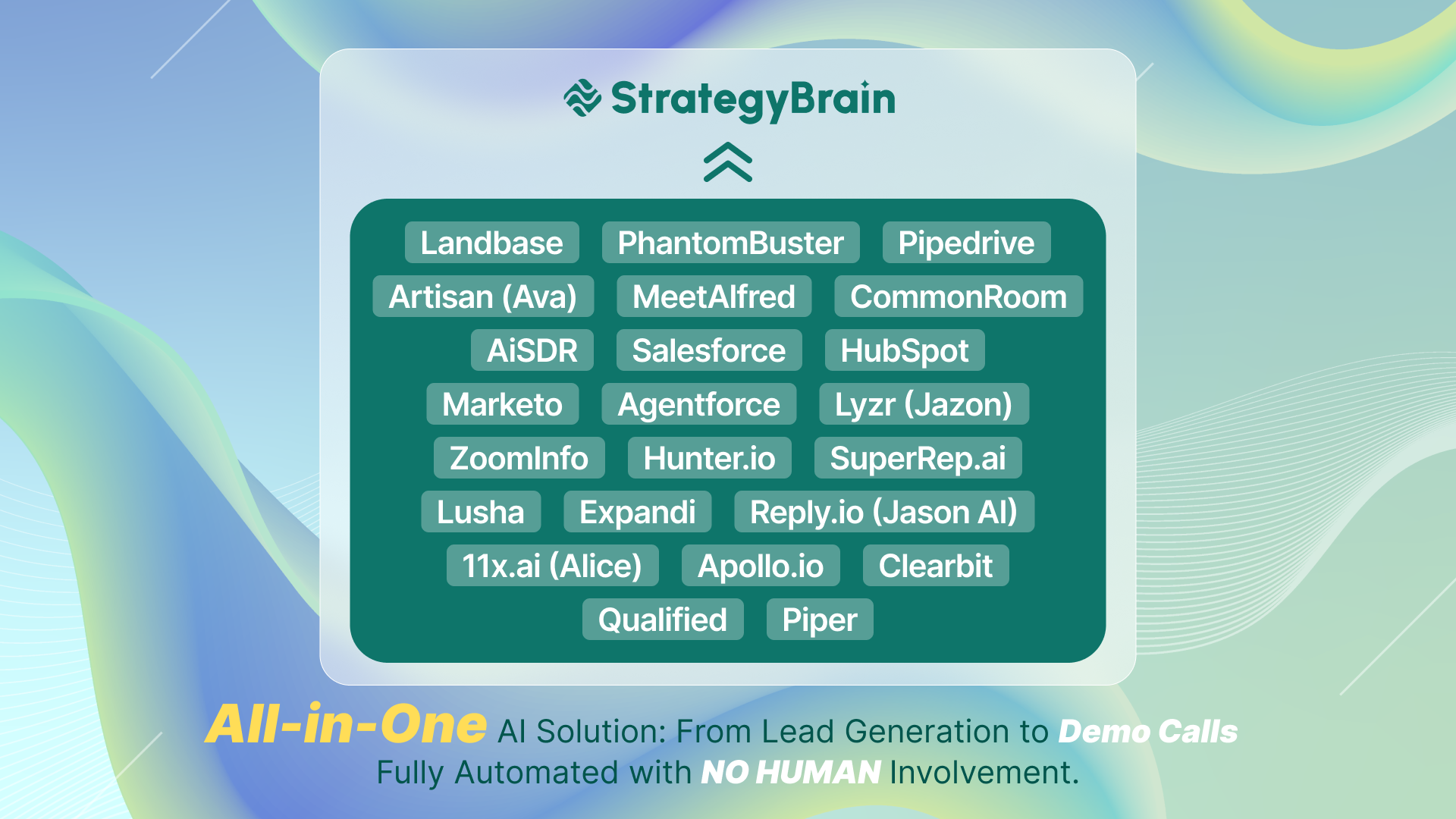
Choosing between an AI sales rep and traditional tools can feel overwhelming. Each option offers unique advantages, but the right choice depends on your business goals. AI sales reps excel in automation, reducing human errors by 20% and delivering a reported ROI increase of 10-20%. Traditional tools, however, shine in building trust and handling complex sales scenarios.
Metric | AI Sales Reps | Traditional Tools |
|---|---|---|
Reduction in human errors | 20% | N/A |
Reported ROI increase | 10-20% higher | N/A |
Key areas of AI effectiveness | 5 identified areas | N/A |
When deciding, consider factors like user-friendliness, scalability, and integration capabilities. Balancing automation with personal interactions ensures efficiency without losing the human touch. Tailored strategies, such as using AI for lead generation and humans for closing deals, can maximize results.
Key Takeaways
AI sales reps handle boring tasks, saving time and cutting mistakes by 20%. This helps your team focus on making sales.
Traditional tools are great for trust-building and tricky sales. They add a personal touch that customers like, especially for expensive items.
Mixing AI and traditional tools makes a strong sales plan. Use AI to find leads and study data, while people handle relationships and tough talks.
AI sales reps work all day and night, so no lead is missed. This nonstop work makes customers happier and boosts interactions.
Spending on AI can save money over time. Automating tasks can cut costs by up to 60%, making it a smart choice for businesses.
Understanding AI Sales Reps
What Is an AI Sales Rep?
An AI sales rep is a virtual assistant powered by artificial intelligence, designed to streamline your sales processes. It automates repetitive tasks like lead qualification, follow-ups, and appointment scheduling. Unlike traditional methods, it works tirelessly around the clock, ensuring no opportunity slips through the cracks. AI sales reps, also known as AI SDR agents, combine machine learning and natural language processing to engage with prospects effectively. They analyze data, predict outcomes, and deliver personalized outreach to improve customer engagement and conversion rates.
Transform Your Sales Process
Discover how the AI Sales Rep can streamline your sales and boost efficiency. Click to learn more!
Key Features of AI Sales Reps
Automation and Scalability
AI sales reps excel in automating up to 90% of lead management tasks, including categorizing leads and scheduling appointments. This level of automation allows your team to focus on closing deals rather than administrative work. Scalability is another standout feature. AI SDR agents can handle thousands of interactions simultaneously, making them ideal for high-volume sales environments.
Real-Time Analytics
With real-time analytics, AI sales reps provide actionable insights into customer behavior and preferences. They evaluate leads continuously, ensuring your team focuses on high-quality prospects. Predictive accuracy is a game-changer, with AI achieving up to 99% accuracy in meeting targets and 98.33% in revenue projections.
Personalized Outreach
AI sales reps deliver tailored messages based on customer data and interactions. This personalized outreach builds trust and fosters engagement, making your prospects feel valued. By analyzing historical data, AI tools customize proposals and adjust them in real-time, improving acceptance rates.
Benefits of AI Sales Reps
Cost-Effectiveness
AI sales reps significantly reduce operational costs. Automating administrative tasks can save up to 30% in labor costs, while AI-powered communication tools cut expenses by 40-60%. These savings allow you to allocate resources to more strategic initiatives.
24/7 Availability
Unlike human sales reps, AI SDR agents work around the clock. They ensure no lead is left unattended, providing instant responses and maintaining consistent communication. This 24/7 availability enhances customer satisfaction and increases interaction rates.
AI-Powered Sales Coaching
AI-powered sales coaching is one of the most transformative benefits. AI tools analyze performance metrics and provide actionable feedback to improve your team's skills. They identify areas for improvement and offer data-driven strategies, ensuring your team stays ahead of the competition.
Tip: Integrating AI sales reps into your strategy can boost efficiency and drive better results. They handle routine tasks, allowing your team to focus on building relationships and closing deals.
Limitations of AI Sales Reps
Lack of Emotional Intelligence
AI sales reps lack the human touch that is essential for building strong customer relationships. They often engage in generic and impersonal interactions, which fail to resonate with your prospects. Unlike human sales reps, AI tools cannot interpret subtle cues or adapt their messaging based on emotions. This limitation can lead to poorly timed or irrelevant communications that frustrate customers. For example, premature outreach or excessive follow-ups can sour the customer experience.
AI-powered sales tools offer certain advantages, but they cannot replace the invaluable role of human intuition and emotional intelligence in building strong customer relationships.
Without emotional intelligence, AI sales reps may come across as impersonal and out of touch. This perception can undermine trust and hinder long-term relationship-building efforts.
Challenges in Complex Sales
AI sales reps struggle with the nuances of complex sales processes. These scenarios often require a deep understanding of the customer's unique needs and the ability to navigate intricate negotiations. AI tools, while efficient, lack the flexibility to handle such situations effectively.
Some common challenges businesses face when implementing AI sales reps include:
Concerns about maintaining the human touch in high-stakes interactions.
Customization needs to align AI tools with specific sales goals.
For high-ticket or specialized sales, relying solely on AI can limit your ability to close deals successfully.
Dependence on Data Quality
The effectiveness of AI sales reps hinges on the quality of the data they process. Inaccurate or incomplete data can lead to flawed predictions and irrelevant outreach. This dependency makes it crucial for you to maintain a robust data management system.
Businesses often encounter these issues:
Data quality problems that reduce AI's effectiveness.
Financial constraints in investing in data-cleaning tools.
Ongoing training needs to ensure proper data handling.
Without reliable data, even the most advanced AI tools cannot deliver optimal results. Ensuring high-quality data is essential for maximizing the potential of AI sales reps.
Exploring Traditional Tools
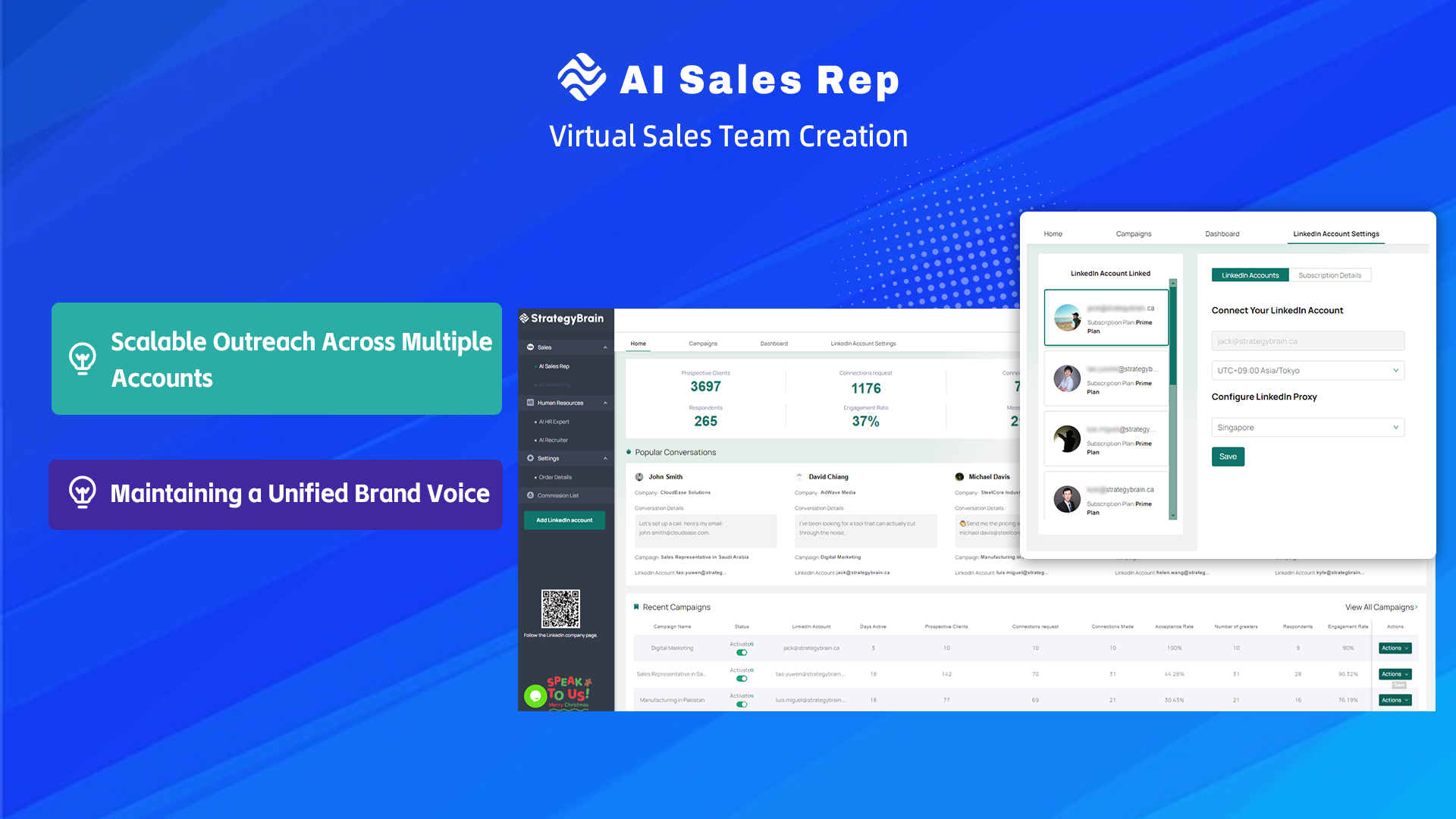
What Are Traditional Sales Tools?
Traditional sales tools refer to the methods and resources that rely on human expertise and manual processes to drive sales. These include face-to-face meetings, phone calls, email communication, and customer relationship management (CRM) systems. Unlike AI-driven solutions, traditional tools emphasize personal interactions and emotional intelligence to build trust and close deals. They are particularly effective in scenarios where understanding customer emotions and navigating complex negotiations are critical.
Key Features of Traditional Tools
Human Touch and Emotional Intelligence
Traditional tools excel in delivering the human touch that customers value. You can listen to your clients, relate to their needs, and personalize their buying journey. This approach fosters stronger relationships and builds trust. By focusing on meaningful interactions, you can create a customer experience that feels genuine and tailored.
Flexibility in Complex Sales
When dealing with intricate sales processes, traditional tools provide unmatched flexibility. You can adapt your approach based on the unique needs of each client. This adaptability is crucial for high-ticket sales or specialized markets where a one-size-fits-all strategy falls short.
Relationship Building
Traditional tools prioritize relationship building. By engaging directly with customers, you can establish long-term connections that go beyond transactions. This focus on relationships ensures customer loyalty and repeat business, which are essential for sustained growth.
Aspect | Traditional Sales Tools | |
|---|---|---|
Learning Approach | One-size-fits-all, structured sessions | Personalized, adaptive learning paths |
Feedback | Periodic, often delayed feedback | Immediate, data-driven feedback |
Scalability | Limited scalability, costly for large teams | Highly scalable, efficient for teams of all sizes |
Adaptability | Static content that requires periodic updates | Dynamic, constantly evolving with market trends |
Integration into Daily Tasks | Separate training sessions | Integrated into workflows for continuous learning |
Customer Insights | Based on hypothetical personas and case studies | Real-time insights from live customer data |
Automation of Tasks | Minimal, primarily manual processes | High automation, reduces administrative burden |
Cost Efficiency | Often costly with travel and workshop expenses | Cost-effective, especially for remote teams |
Benefits of Traditional Tools
Personalized Customer Interactions
Traditional tools allow you to deliver highly personalized customer interactions. By understanding your clients' emotions and preferences, you can tailor your approach to meet their specific needs. This level of personalization enhances the customer experience and increases the likelihood of closing deals.
Expertise in High-Ticket Sales
For high-value or complex sales, traditional tools provide the expertise needed to navigate intricate negotiations. You can leverage your knowledge and experience to address customer concerns and present compelling solutions. This hands-on approach is invaluable for securing high-ticket deals.
Trust and Credibility
Building trust and credibility is easier with traditional tools. Direct interactions enable you to demonstrate your expertise and commitment to your clients. This trust fosters long-term relationships and positions you as a reliable partner in their journey.
Note: By integrating human insights with digital tools, you can enhance the customer journey and strengthen relationships. Focus on meaningful interactions to maximize the impact of traditional sales tools.
Limitations of Traditional Tools
Time-Intensive Processes
Traditional tools often require significant time investment. You must manually handle tasks like lead qualification, follow-ups, and data entry. These processes slow down your workflow and reduce efficiency. For example, scheduling meetings or responding to inquiries can take hours, leaving less time for strategic activities.
Did you know? Sales reps spend nearly 64% of their time on non-revenue-generating tasks. This inefficiency can hinder your ability to meet sales targets.
By relying on manual methods, you risk falling behind competitors who use faster, automated solutions. Streamlining these processes becomes essential to stay competitive in today’s fast-paced market.
Limited Scalability
Scaling your sales operations with traditional tools presents challenges. As your business grows, you’ll need more resources to manage increased workloads. Hiring and training additional staff can be costly and time-consuming.
Traditional tools lack the ability to handle high volumes of leads or interactions simultaneously. For instance, managing hundreds of prospects manually can overwhelm your team. This limitation restricts your ability to expand into new markets or handle sudden spikes in demand.
Tip: If scalability is a priority, consider integrating AI tools to complement your traditional methods. This hybrid approach can help you manage growth more effectively.
Higher Labor Costs
Relying on traditional tools often leads to higher labor costs. You need skilled professionals to perform tasks that could otherwise be automated. This includes data entry, customer follow-ups, and report generation.
The cost of hiring, training, and retaining employees adds up quickly. Additionally, human errors in manual processes can result in financial losses. For example, a missed follow-up or incorrect data entry could cost you a valuable deal.
By adopting more efficient tools, you can reduce these expenses and allocate your budget to other critical areas. Investing in technology doesn’t just save money—it also boosts productivity and improves your bottom line.
Comparing AI Sales Reps and Traditional Tools
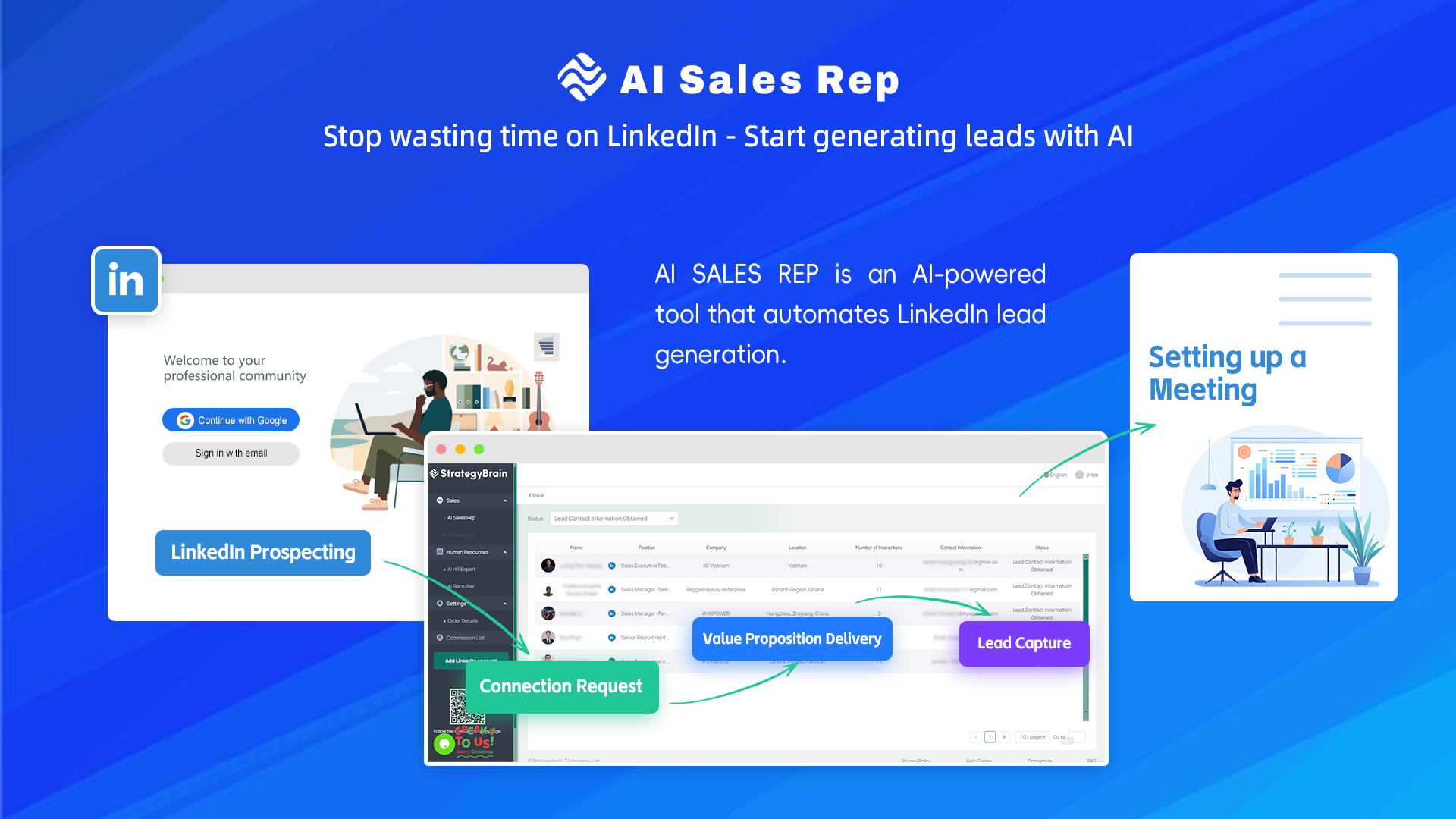
Cost and Efficiency
Upfront Costs vs. Long-Term Savings
When evaluating costs, AI-powered sales tools often require an initial investment in software licenses, implementation, and training. However, these upfront expenses translate into long-term savings. By automating lead generation and administrative tasks, you can reduce operational costs by up to 60%. For example, predictive analytics can lower lead acquisition costs by 70%, while accurate forecasting minimizes wasteful spending by 30%. The U.S. Army Corps of Engineers saved $100 million annually by integrating AI systems, showcasing the financial benefits of this technology.
Traditional tools, on the other hand, rely heavily on human resources. While they may have lower initial costs, the long-term expenses of hiring, training, and retaining skilled professionals can add up. These tools often lack the scalability and efficiency of AI, making them less cost-effective for growing businesses.
Labor Costs vs. Automation Costs
AI sales reps excel in reducing labor costs. By automating repetitive tasks, you can save up to 30% in labor expenses. This allows your team to focus on high-value activities like closing deals. Additionally, AI-driven tools streamline communication, cutting operational expenses by 40-60%. In contrast, traditional tools require a larger workforce to manage the sales process, leading to higher labor costs and slower workflows.
Personalization and Customer Experience
AI-Driven Personalization
AI-powered sales tools analyze customer data, purchase history, and preferences to deliver tailored experiences. This level of personalization enhances customer satisfaction and loyalty. For instance, real-time analytics enable AI to adjust proposals dynamically, improving acceptance rates. AI also excels in scaling personalized outreach, ensuring every prospect receives relevant communication.
Human-Driven Relationship Building
Traditional tools shine in building emotional connections. Human sales reps understand and respond to customer emotions, offering a more personalized experience. This approach is invaluable for complex or emotionally charged sales scenarios. While AI can provide data-driven insights, it cannot replicate the empathy and critical thinking that humans bring to the table.
Approach | Personalization Capability | Strengths |
|---|---|---|
AI | Analyzes customer data, purchase history, and preferences for tailored experiences | Enhances customer satisfaction and loyalty through targeted marketing efforts |
Human | Understands and responds to customers' emotions for a more personalized experience | Can handle complex, novel, or emotionally charged issues requiring critical thinking and problem-solving |
Scalability and Adaptability
AI for High-Volume Sales
AI sales reps are ideal for high-volume sales environments. They handle thousands of interactions simultaneously without compromising quality. Features like 24/7 availability and real-time analytics ensure consistent engagement with leads, regardless of time zones. This scalability reduces overhead costs and enhances efficiency, making AI a cost-effective solution for businesses aiming to expand.
Traditional Tools for Niche Markets
Traditional tools excel in niche markets where personalized attention and expertise are crucial. Human sales reps adapt to unique client needs, offering tailored solutions that AI cannot match. While less scalable, this approach builds trust and credibility, which are essential for long-term success in specialized industries.
When to Use AI Sales Reps or Traditional Tools
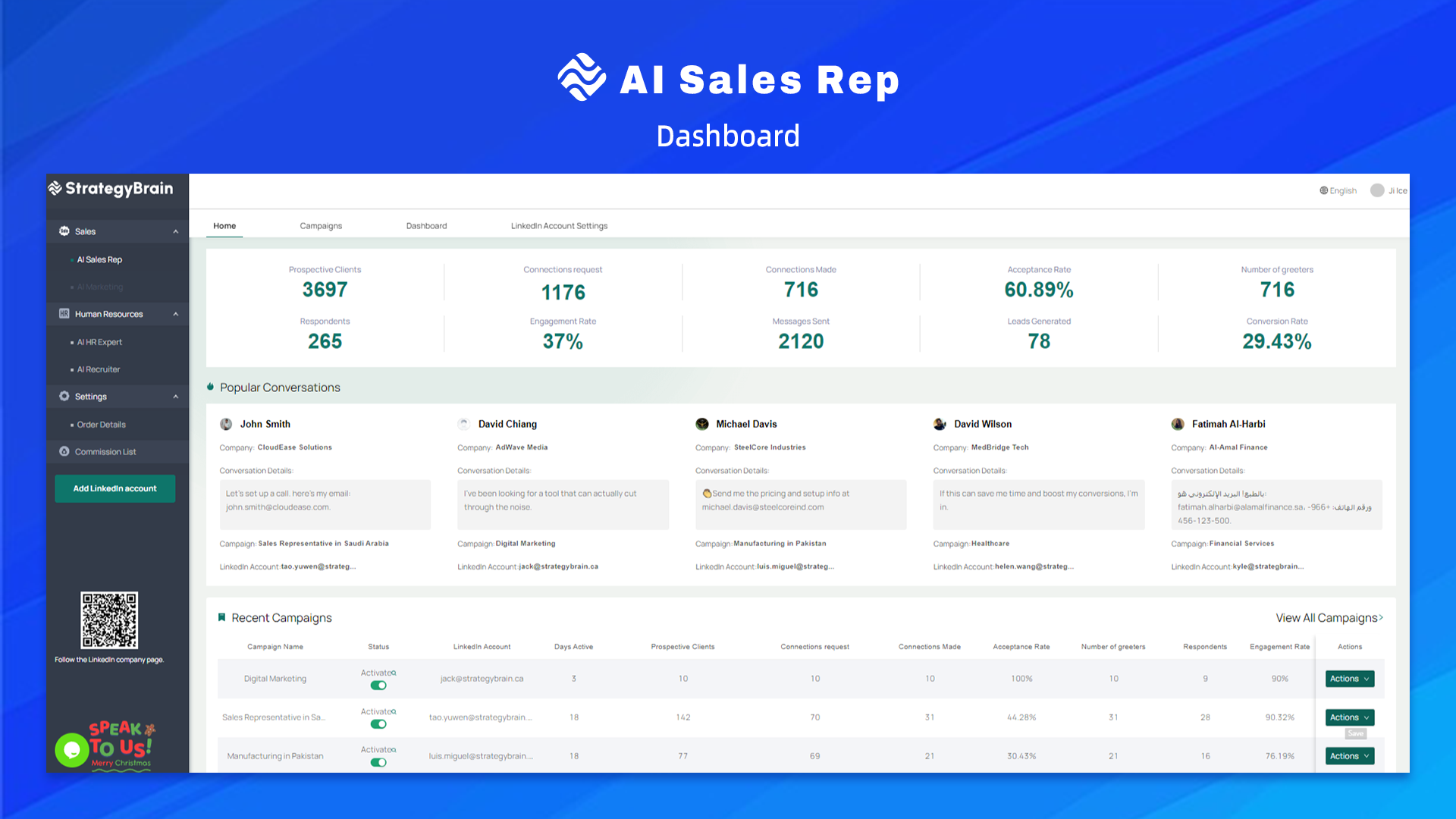
Best Use Cases for AI Sales Reps
High-Volume Lead Generation
If your business relies on high-volume lead generation, AI sales reps are the perfect solution. These tools can contact thousands of prospects daily, significantly increasing your outreach efforts. By automating lead qualification, AI ensures your team focuses only on high-quality leads. For example, AI-powered SDRs manage follow-up sequences seamlessly, saving time and reducing operational costs. Industries like SaaS, B2B marketing, and e-commerce benefit greatly from automated lead outreach, as it minimizes the need for large SDR teams while maximizing efficiency.
Use Case | Description |
|---|---|
High-Volume Lead Generation | AI SDRs can contact thousands of prospects daily, increasing outreach significantly. |
Lead Qualification Automation | AI-powered lead scoring filters out unqualified prospects, ensuring only ideal candidates are pursued. |
Follow-Up Sequences | AI manages complex email and LinkedIn follow-ups without human intervention. |
Minimize Lead Generation Costs | Reduces the need for large SDR teams, lowering operational expenses. |
Data-Driven Decision Making
AI sales reps provide data-driven insights that transform your sales strategy. By analyzing historical sales data, AI predicts future trends and identifies promising leads. This allows you to prioritize high-conversion opportunities and refine your outreach approach. Real-time performance tracking ensures your team stays on target, while AI-driven analytics suggest effective closing strategies. These tools empower you to make informed decisions, boosting your overall sales performance.
Cost-Sensitive Operations
For businesses with tight budgets, AI sales reps offer a cost-effective alternative to traditional methods. Virtual SDRs handle thousands of leads efficiently, ensuring no prospect is overlooked. By automating lead generation and CRM tasks, you can reduce the need for a large sales team, cutting costs by up to 60%. Additionally, AI platforms eliminate travel and physical session expenses, making them ideal for remote teams.
Best Use Cases for Traditional Tools
High-Ticket or Complex Sales
Traditional tools excel in high-ticket or complex sales scenarios. These situations often require a deep understanding of customer needs and the ability to navigate intricate negotiations. Human SDRs bring emotional intelligence and adaptability to the table, ensuring your clients feel valued. This relationship-driven sales approach builds trust, which is essential for closing high-value deals.
Building Long-Term Relationships
If your goal is to foster long-term relationships, traditional tools are indispensable. Direct interactions allow you to connect with clients on a personal level, creating a sense of loyalty and trust. By focusing on meaningful conversations, you can strengthen your relationship with customers, ensuring repeat business and referrals. This approach is particularly effective in industries where relationship-driven sales are a priority.
Niche or Specialized Markets
In niche markets, personalized attention is key. Traditional tools enable you to tailor your sales approach to meet the unique needs of specialized industries. Human SDRs adapt quickly to changing client requirements, offering customized solutions that AI cannot replicate. This flexibility makes traditional methods the best choice for businesses targeting specific audiences.
Factors to Consider
Business Goals and Objectives
Your choice between AI sales reps and traditional tools should align with your business goals. If scalability and efficiency are your priorities, AI tools are the way to go. For businesses focused on relationship-driven sales, traditional methods offer the personal touch needed to build trust.
Budget and Resources
Budget constraints play a significant role in your decision. AI platforms allow you to scale operations without proportional cost increases, making them ideal for cost-sensitive businesses. On the other hand, traditional tools often require higher labor costs, which may not be feasible for smaller teams.
Target Audience and Market
Understanding your target audience is crucial. AI excels in high-volume lead generation and automated lead outreach, making it perfect for broad markets. However, if your audience values personal interactions, traditional tools provide the emotional intelligence and adaptability needed to meet their expectations.
Combining AI Sales Reps and Traditional Tools
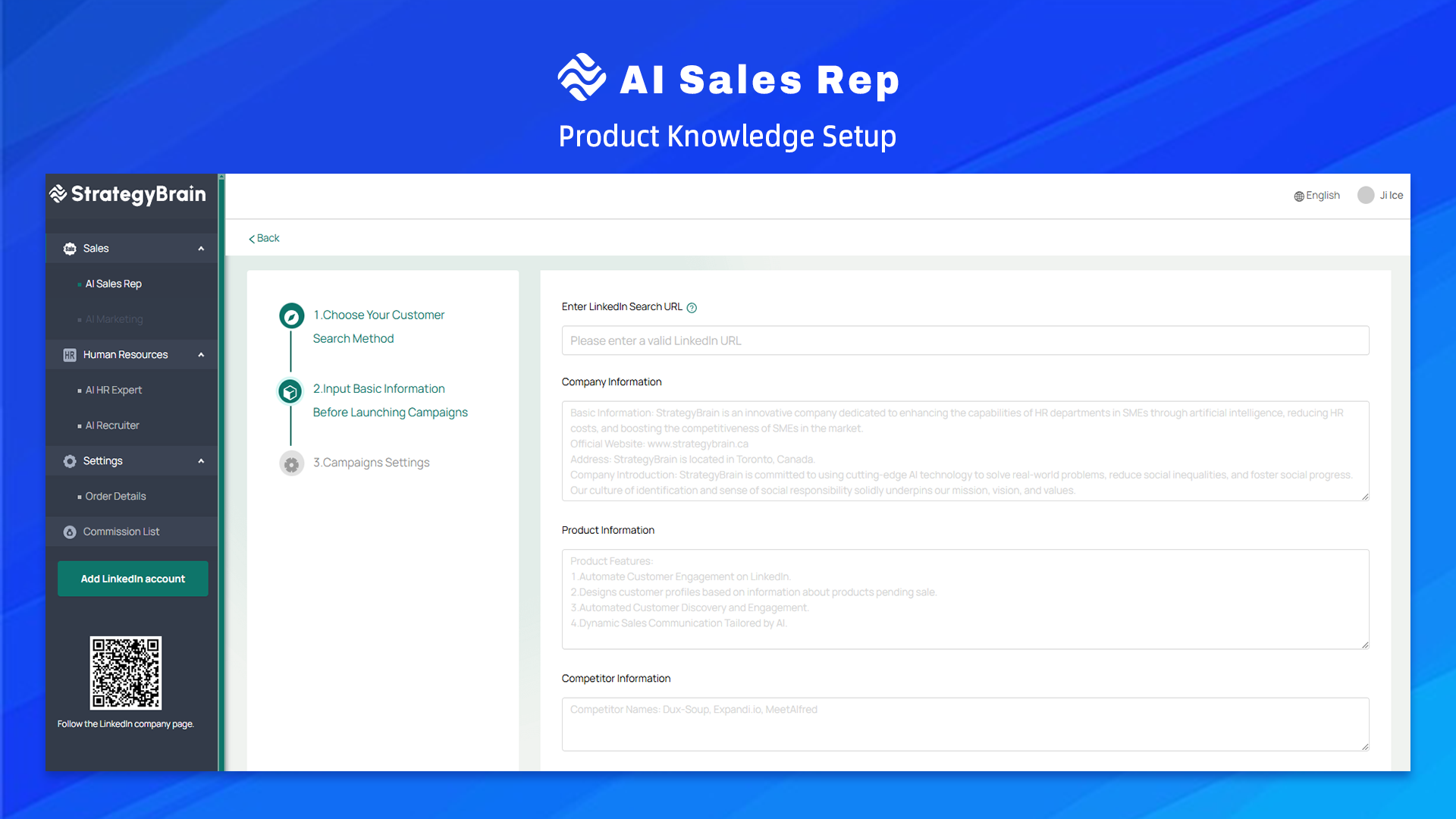
Why Integration Works
Balancing Efficiency and Personalization
Integrating AI sales reps with traditional tools allows you to achieve the perfect balance between efficiency and personalization. AI automates tedious tasks like lead qualification automation, freeing up your team to focus on building meaningful relationships with customers. This combination ensures that while AI handles repetitive processes, your sales reps can deliver the human touch that customers value.
Machine learning algorithms predict customer behavior and preferences, enabling you to tailor your approach.
Real-time adaptation ensures your personalization strategies align with customer interests.
Balancing personalization with data privacy builds trust and fosters engagement.
By leveraging both AI and traditional methods, you can create a seamless sales experience that feels both efficient and personal.
Leveraging Data Insights with Human Expertise
AI provides actionable insights by analyzing customer data and sales trends. These insights empower your team to make informed decisions and refine their strategies. However, human expertise remains essential for interpreting complex scenarios and addressing unique customer needs. Together, AI and traditional tools enhance your sales pipeline management by combining data-driven precision with emotional intelligence.
How to Integrate AI and Traditional Tools
Identify Complementary Roles
Start by defining the roles AI and your sales team will play. Use AI for tasks like lead generation and nurturing, while reserving complex negotiations and relationship-building for your human reps. This division ensures each tool operates in its area of strength.
Train Teams to Use AI Effectively
Equip your team with the skills to use AI tools efficiently. Training should focus on integrating AI into daily workflows and interpreting AI-generated insights. Traditional sales training programs can incorporate AI modules to ensure your team adapts seamlessly.
Monitor and Optimize Performance
Regularly evaluate the performance of your integrated system. Use metrics like lead conversion rates and customer satisfaction scores to identify areas for improvement. Adjust your strategies to ensure both AI and traditional tools work harmoniously.
Examples of Successful Integration
AI for Lead Generation, Humans for Closing Deals
AI sales bots streamline lead nurturing by automating initial engagement. They ensure no prospect is overlooked and hand off qualified leads to your sales team. For example, tools like Leadfeeder track website visitors and provide insights, enabling your team to tailor their outreach effectively. Human reps then manage complex customer concerns, ensuring a personal touch.
AI for Data Analysis, Humans for Strategy
AI excels in analyzing large datasets to uncover trends and opportunities. For instance, predictive analytics can optimize sales performance metrics, helping your team focus on high-potential leads. Meanwhile, your sales reps use these insights to craft strategies that resonate with your audience.
Tip: Combining AI's efficiency with human expertise creates a sales strategy that is both scalable and adaptable.
Both AI sales reps and traditional tools bring unique advantages to the table. Your choice should align with your business goals, resources, and target audience. AI excels in automation and scalability, while traditional tools shine in building trust and handling complex sales.
Pro Tip: Combine both approaches to create a powerful sales strategy. Let AI handle repetitive tasks while your team focuses on relationship-building.
Evaluate your objectives and experiment with integration. This balanced approach ensures you maximize efficiency and deliver a personalized customer experience. The future of sales lies in leveraging the best of both worlds.
FAQ
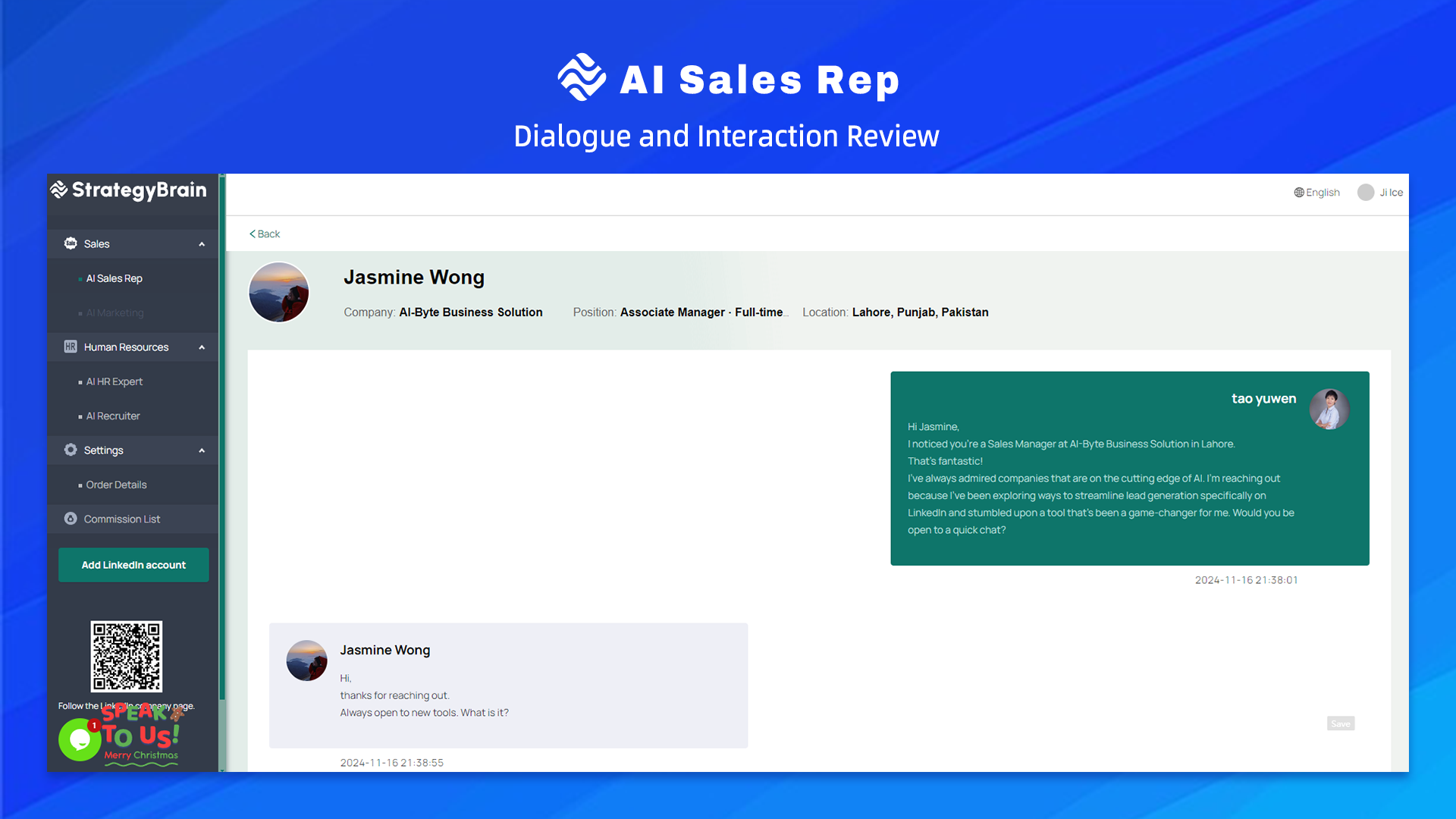
What is the main advantage of using AI sales reps?
AI sales reps save you time and money by automating repetitive tasks like lead qualification and follow-ups. They work 24/7, ensuring no opportunity is missed. This efficiency allows your team to focus on closing deals and building relationships, driving better results with less effort.
Are AI sales reps suitable for small businesses?
Absolutely! AI sales reps are cost-effective and scalable, making them perfect for small businesses. With a one-time investment, you can streamline your sales process and compete with larger companies. Their automation capabilities help you maximize limited resources while boosting productivity.
Can AI sales reps replace human sales teams?
No, AI sales reps complement your team rather than replace it. They handle routine tasks, freeing your team to focus on complex sales and relationship-building. This partnership ensures you achieve both efficiency and personalization, creating a balanced and effective sales strategy.
How do traditional tools compare to AI in terms of cost?
Traditional tools often require higher labor costs due to manual processes and training. AI sales reps, on the other hand, reduce operational expenses by automating tasks. While traditional tools excel in emotional intelligence, AI offers long-term savings and scalability, making it a smarter investment for many businesses.
Can I combine AI sales reps with traditional tools?
Yes, combining both approaches creates a powerful sales strategy. Use AI for lead generation and data analysis, while your team focuses on closing deals and building trust. This integration balances efficiency with personalization, ensuring you deliver exceptional customer experiences.
Tip: Start small by integrating AI into one area, like lead generation, and expand as you see results.
See Also
Essential Tools to Pair with Riskify for Enhanced Risk Management
Utilizing Feedify's Smart Tools to Boost Engagement and Subscriber Conversion
Maximizing Riskify for Instant Cybersecurity and ESG Risk Assessment
Comparing ChatHub with Competing AI Chatbot Solutions
Facilitating Seamless Account Sharing for Teams via RemoteSpace